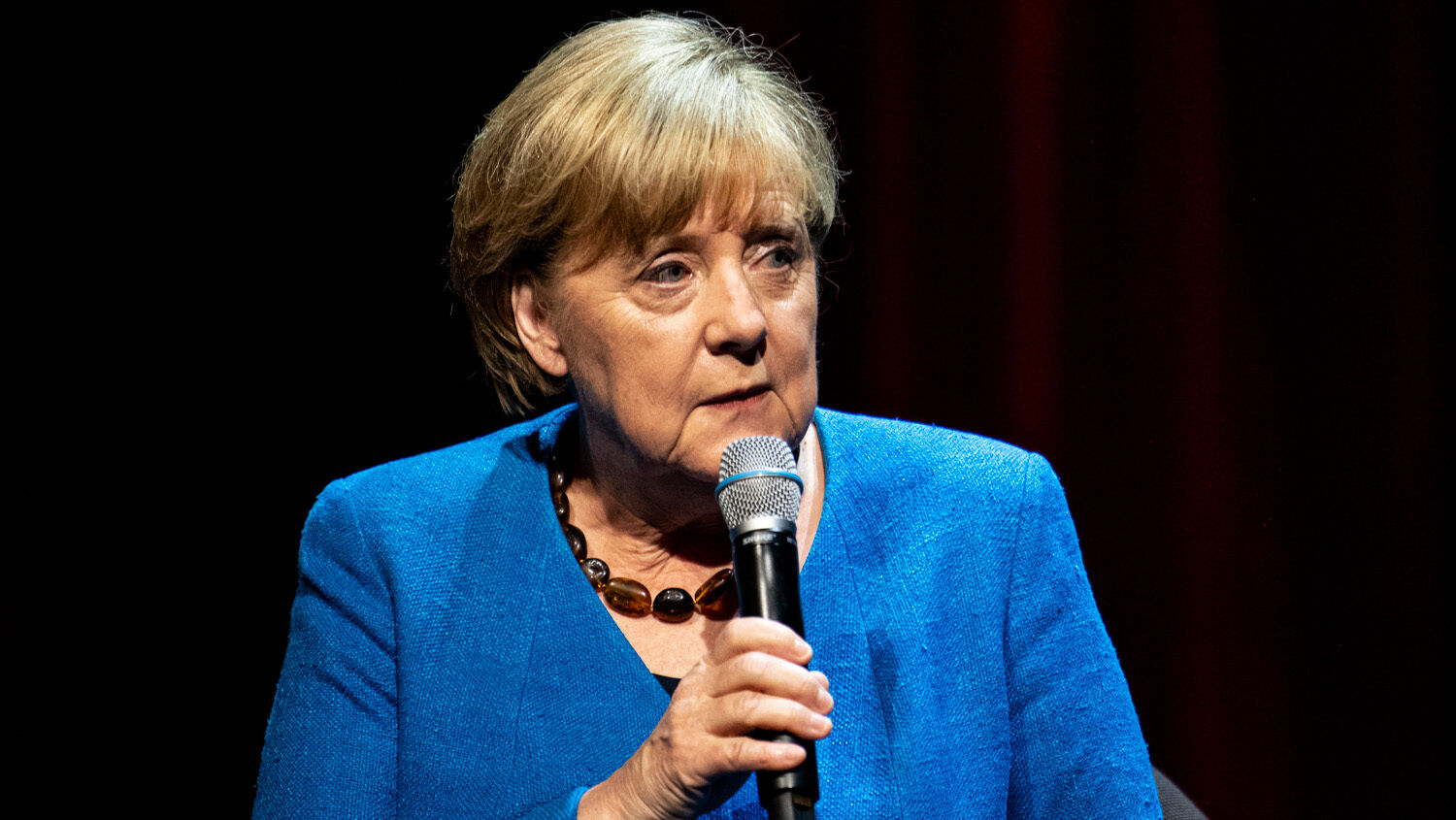
Angela Merkel Gives First Post-Chancellorship Interview
Former German Chancellor Angela Merkel gave an interview to Die Zeit. Published December 7, this is her first interview since leaving office last year. Merkel, who served as chancellor from 2005 to 2021, had been described as “the most powerful woman in the world” and “the unofficial leader of Europe.” Now that she’s been out of office for a year, what is her take on the situation in Germany and the world? Here are select snippets from the interview:
Does Merkel mistrust Germans?
I wouldn’t call it mistrust of one’s own people, but a general mistrust of us humans, because people are capable of incomprehensible things. Germany took this to the extreme in a terrible way under National Socialism. That is why I am so convinced that the structure of our state and the Basic Law contain a high degree of wisdom in which the independence of the press, the judiciary, the democratic processes are well thought out.
Why did Merkel approve the Nord Stream 2 pipeline?
It was not the case that the German government had applied for the approval of Nord Stream 2, the companies did. For the federal government and for me, it was therefore a matter of deciding whether we should make a new law as a political act in order to expressly refuse to approve Nord Stream 2. [Refusing approval] would have significantly worsened our competitiveness. Today, under the pressure of war, this is what I support, but at that time, it would have been a much more massive political decision [which I would not have made], especially since there would have been no acceptance at all.
What does Merkel think of German-Russian relations?
I will tell you a point that concerns me. It has to do with the fact that the Cold War never really ended, because Russia was basically not pacified. [Germany] should have reacted more quickly to Russia’s aggressiveness. Germany has not reached the 2 percent target despite the increase. And I have not given a fiery speech about it every day.
Could German society collapse?
It must be lived by each individual, otherwise it can quickly collapse. … Of course, this is not all of Germany, but we must never declare a part of the individuals in a country to be outsiders and the rest, so to speak, representatives of real democracy. This does not end with anything good.
Merkel’s interview is telling for a few reasons. First, she received much flak for her relationship with Russian President Vladimir Putin during her tenure. That criticism grew with the start of the Ukraine war a few months after she retired. Her comments seem to admit that her approach to Russia was a failure. With its World War ii legacy in hindsight, Germany has been reluctant to militarize. But stating that “the Cold War never really ended” and that “Russia was not pacified” implies that Germany should have taken a more confrontational approach. A Germany with a strong enough military to counter Russia would be unprecedented in modern times.
Second, the Nord Stream 2 natural gas pipeline was constructed to transmit natural gas from Russia to Germany. The pipeline travels under the sea, bypassing Eastern Europe. Most of Russia’s other pipelines run through countries, such as Ukraine and Poland. Analysts posited that Nord Stream 2 would allow Russia to invade Eastern Europe without damaging its gas export markets. The war in Ukraine seems to confirm those predictions. Merkel downplayed the costliness of her decisions, but she also pointed the finger at German businesses as the pipeline’s driving force. Last year, it was reported that German industry “twisted her arm” to get the pipeline approved.
Third, Merkel’s tacit admission that German society “could quickly collapse” is ominous. During the nation’s 2015 election, far-right Alternative für Deutschland became the largest opposition party. The state of Thuringia, meanwhile, elected Die Linke, the successor to East Germany’s Communist Party, for its state government. Recently, German authorities have arrested 25 alleged coup plotters. According to Merkel, extremism continues to be a threat to Germany.
Angela Merkel acknowledged that Germany is heading into troubling times. She specifically cited the Nazi period as a historical harbinger. Many see Germany today as a bastion of freedom and democracy, but if the former chancellor’s comments mean anything, Germany is en route for more “incomprehensible things.” To learn more, read Trumpet editor in chief Gerald Flurry’s booklet A Strong German Leader Is Imminent.
